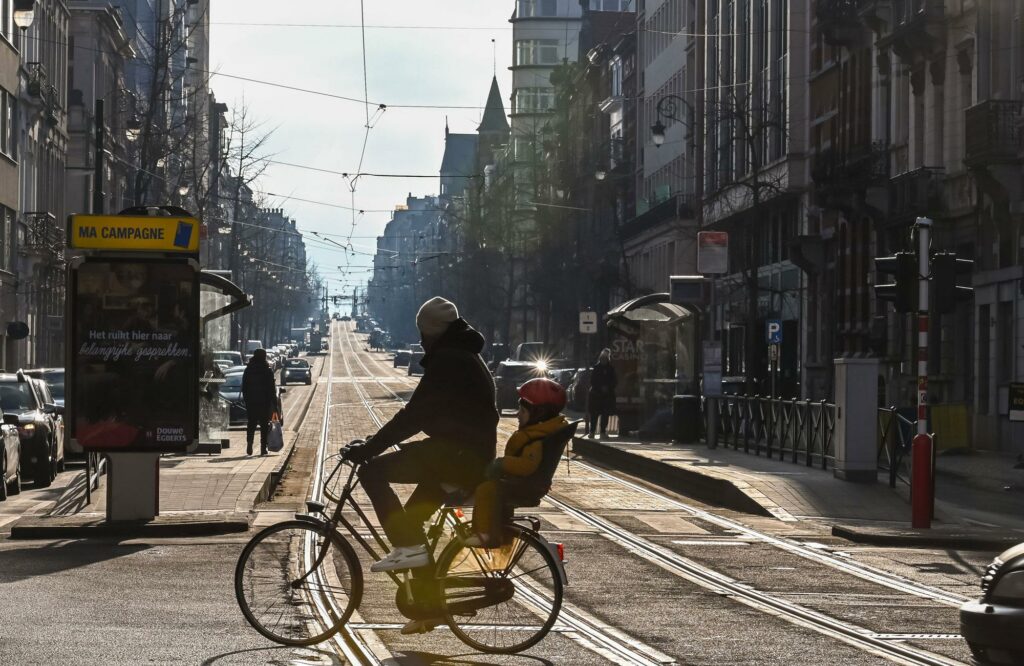Belgian commutes are becoming greener. While the majority of people still rely (partly) on a car for their commute, diesel is being phased out. A record number of people are also opting for cycling.
On average, Belgians live 20.8 kilometres from work. When it comes to how to get there, the car is losing some ground in Belgium but nevertheless remains the most popular transport method, according to the annual mobility barometer of HR services company Acerta.
Almost 78% of commutes last year were done by car. Some 54% of workers exclusively took the car to go to work, compared to almost 58% the previous year.
A quarter (23.5%) of white-collar workers currently have a company car. However, efforts to make the car fleet greener are starting to pay off: 10.1% of company cars are now electric, more than tripling the share compared to last year. Another 17.1% are hybrid. In contrast, the share of diesel company cars dropped by a quarter.
This is largely due to the Federal Government's break on fossil-fuel commercial vehicles from 1 January 2026. Leading up to this, the tax deductibility for those cars was already on a gradual decline since last year, resulting in companies stepping away from diesel vehicles.
"Commuting is becoming greener not only because of the rise of electric and hybrid cars but also because of the increasing popularity of the bicycle and the scooter," said Charlotte Thijs, mobility expert at Acerta Consult.
Policy changes driving cycling
Almost four in ten workers in Belgium (39%) used bicycles to cover at least part of their commute to work last year. This is the highest number since their measurements began, and 1.7% more than in 2022.
All workers are now entitled to a bicycle allowance from their employer. Renting an electric bike through work is also becoming more common. "Additionally, the road code now leaves more room for cycling. We therefore expect the number of cycling commuters to increase in the coming years."
However, just 15.3% of workers carry out their entire commute by bike. It is mostly combined with the use of a car (22%). Only a very small proportion combine cycling with public transport.
Related News
- Belgium leads the way as other countries struggle with national cycling strategies
- The 10 traffic offences people in Belgium commit most
- Belgium 'completely addicted' to cars: Is a green transition still possible?
The number of employees opting for the train, tram or bus as part of their commute to work is back at pre-Covid levels. In 2023, 8.5% of commuters used public transport, up from 7.8% in 2021. This highlights that public transport is less popular than private means of transport.
"This is of course strongly related to the location of the company and the place of residence, together with the public transport offer," Thijs explains. "The disadvantage is that you are dependent on an arrangement that is set up for you. We find that workers are not eager to be in that passive role."

